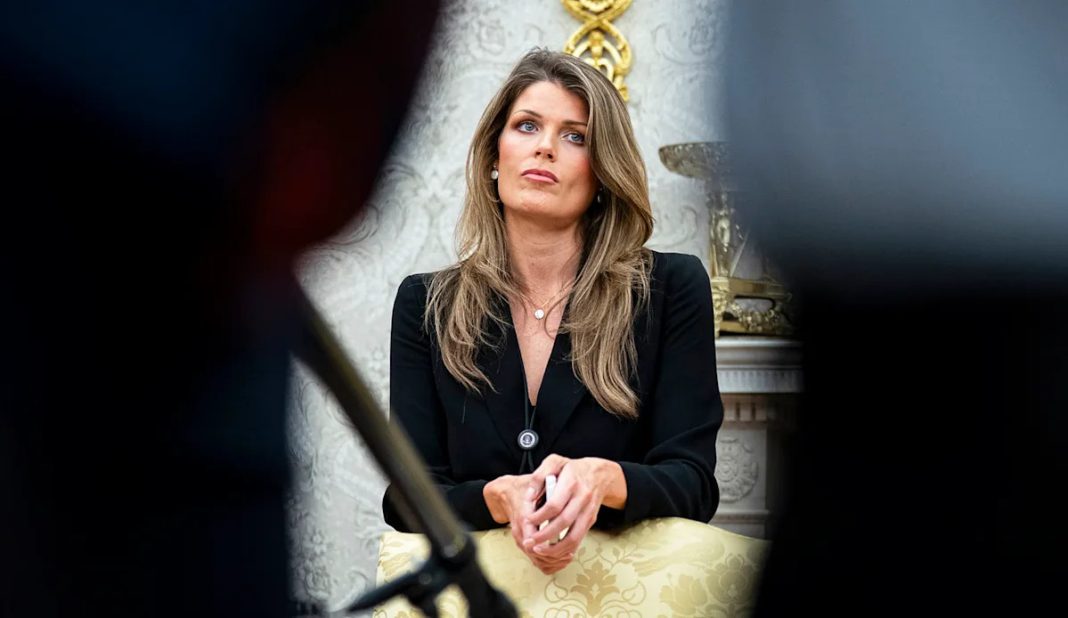A watchdog group wants bar authorities in Florida and Virginia to investigate Lindsey Halligan, the Florida lawyer installed by the Trump administration to pursue criminal cases against the president’s political opponents in Virginia.
The complaint, filed on Tuesday by Campaign for Accountability, cites several rules of professional conduct that the group says Halligan “may have violated” in service of the president’s quest for revenge against James Comey and Letitia James.
The group cites rules requiring candor to the court and competence, as well as ones prohibiting extrajudicial statements, knowingly bringing a charge unsupported by probable cause and being dishonest and deceptive.
“Failing to discipline Ms. Halligan under these egregious circumstances will embolden others who would use our system of justice for their own political ends,” the complaint argues.
The 17-page filing does well to highlight both the shadiness of Halligan’s installation in the Eastern District of Virginia and serious weaknesses in the Comey and James cases. The previous head of the Virginia office was ousted after he resisted bringing those cases. The administration then temporarily appointed Halligan, who lacked prior prosecutorial experience and was previously one of Donald Trump’s personal lawyers. (The legality of her appointment is being litigated separately and is one of several legal issues that could lead to the cases being dismissed.)
Another absurdity highlighted in the complaint is the stunning text message exchange that Halligan initiated with journalist Anna Bower, which the watchdog group says implicates multiple ethical issues.
The secrecy of grand jury proceedings makes it difficult to know at this point whether Halligan violated some of these rules, and some violations (like candor to the court) could still occur as the cases proceed.
But even at this early stage, there are challenges to keep in mind when it comes to proving at least some of these violations.
For example, I previously analyzed the Florida rule that says prosecutors must “refrain from prosecuting a charge that the prosecutor knows is not supported by probable cause.” Even though Halligan brought the cases over the objection of career prosecutors, I noted that to prove Halligan “knew the cases weren’t supported by probable cause appears to be an almost impossible standard to meet, barring some sort of yet-uncovered confession on her part. As opposed to the beyond a reasonable doubt standard that applies at trial, the probable cause standard in the grand jury is famously low.”
There’s also the practical question of the political will of any agency to even consider holding the president’s avatar to account, with the Florida bar already resisting looking into Attorney General Pam Bondi (at least while she’s in office).
To be sure, the watchdog group doesn’t claim to have fully proved a case against Halligan already, but rather is asking the authorities to investigate the matter. Given how these cases came about and have proceeded thus far, it’s reasonable for the appropriate agencies to inquire, and this will be an important subject to follow no matter how the underlying cases conclude.
Subscribe to the Deadline: Legal Newsletter for expert analysis on the top legal stories of the week, including updates from the Supreme Court and developments in the Trump administration’s legal cases.
This article was originally published on MSNBC.com

